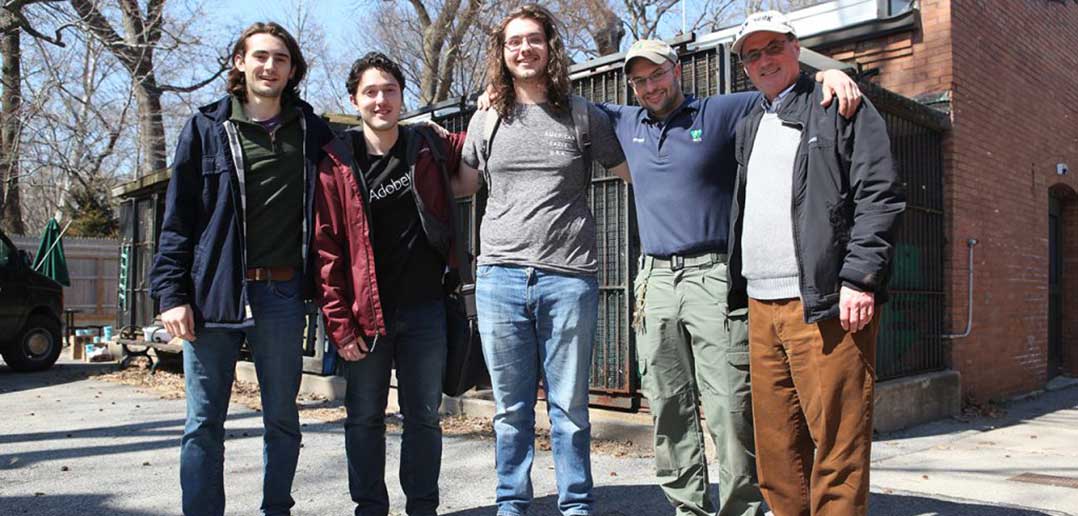Bal initially majored in biology at Fordham, but he switched to computer science in his junior year. Working closely with Damian Lyons, Ph.D., director of the University’s Robotics and Computer Vision Lab, he used technology originally associated with gaming to help herpetologists at the zoo track and study the movements of Kihansi spray toads. The toads had been classified as extinct in the wild in 2009, but in the past decade, scientists at the Bronx Zoo, headquarters of the Wildlife Conservation Society, have been breeding the toads on site and helping to reintroduce them to their native habitat in Tanzania.
According to Lyons, Bal expanded the code to effectively track the toads solely using depth imagery. He also added a color-tracking feature so that made it possible to zero in on the toads when they moved, such as jumping onto a leaf. Bal also created new software to generate behavior analytics.
As an undergrad, Bal also was a volunteer EMT with Fordham University EMS, and he worked as a software engineer intern at Amazon, an experience he said he helped him not only get job offers but also learn “how to work professionally, scalably, and consistently in the real world.”
Today, he’s a software engineer at SpaceX, working on ground network software systems for Starlink, the aerospace manufacturer’s satellite internet service. But one day down the line, Bal said he hopes to launch his own company.
What Fordham course has had the greatest influence on you and your career path so far? How and why was it so influential?
Professor Damian Lyons’ Brains and Behaviors in Beasts and Bots. It was basically a class where we looked at different animal behaviors and then emulated them with robotics (e.g., a bug might walk around until it hits a wall, then it’ll turn and keep moving until it hits a wall, rotate, and so on. At one point we made a robot that did the same). It was a lot of fun, but I would say research outside of class was way more impactful. Classes are good for developing baseline skills, but the best way to solidify your knowledge, grow it, and put it to work is to utilize the resources available to students on campus outside of required coursework, like labs and research opportunities.
Who is the Fordham professor or person you admire the most, and why?
Definitely Lyons. Without the opportunities and encouragement he provided, I’m certain I wouldn’t have made professional progress at the same rate that I have. He introduced me to complex, real-world problems and helped me understand how to break them down into manageable chunks to create something useful. That overall thought process and all of the small nuances I learned along the way have been invaluable in my professional career.
What are you optimistic about?
I’m optimistic about our future. I think that the next few generations will have an extremely large impact on humanity’s trajectory due to their intersection with powerful and exciting technologies that they’ve grown up with, as opposed to previous generations that still remember what it was like to not have smartphones or the entire internet at their fingertips.

